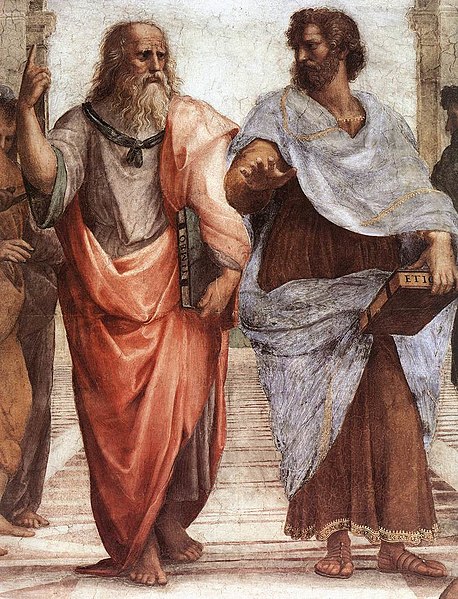Ecology is the natural science of the relationships among living organisms, including humans, and their physical environment. Ecology considers organisms at the individual, population, community, ecosystem, and biosphere levels. Ecology overlaps with the closely related sciences of biogeography, evolutionary biology, genetics, ethology, and natural history.
Image: Bufo boreas
Image: Blue Linckia Starfish
Image: Hawk eating prey
Image: European honey bee extracts nectar
Natural science is one of the branches of science concerned with the description, understanding and prediction of natural phenomena, based on empirical evidence from observation and experimentation. Mechanisms such as peer review and repeatability of findings are used to try to ensure the validity of scientific advances.
Onion (Allium) cells in different phases of the cell cycle. Growth in an 'organism' is carefully controlled by regulating the cell cycle.
Plato (left) and Aristotle in a 1509 painting by Raphael. Plato rejected inquiry into natural philosophy as against religion, while his student, Aristotle, created a body of work on the natural world that influenced generations of scholars.
Johannes Kepler (1571–1630). Kepler's Astronomia Nova is "the first published account wherein a scientist documents how he has coped with the multitude of imperfect data to forge a theory of surpassing accuracy", therefore laying the groundwork for the scientific method.
Isaac Newton is widely regarded as one of the most influential scientists of all time.








